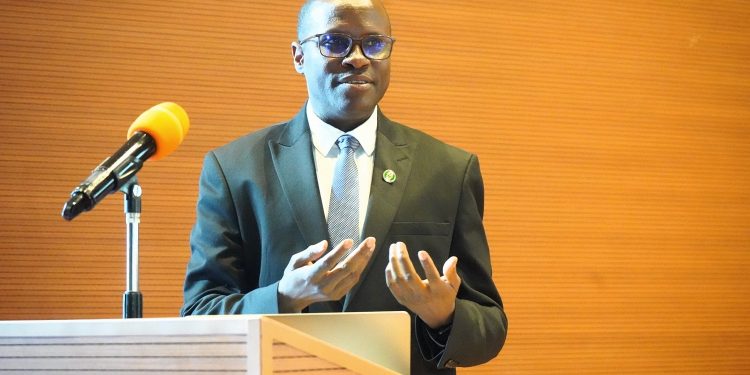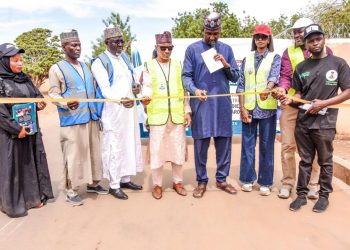By Nkechi Eze
In what has been described as a powerful call for ethical leadership in global commerce, the Chairman of the Independent Corrupt Practices and Other Related Offences Commission (ICPC), Dr. Musa Adamu Aliyu, SAN, has urged international business leaders to adopt corporate integrity as a strategic investment in sustainable growth and long-term success.
Dr. Aliyu made the call while delivering a paper titled “Corporate Integrity in a Global Marketplace: Compliance, Challenges and Strategies – The Nigerian Experience” at the World Anti-Corruption Conference (WACC) 2025, held at Rhodes House, Oxford, United Kingdom. The event, themed “United for Integrity: Innovation, Collaboration, and Accountability in the Fight Against Corruption,” brought together global leaders, policymakers, and industry experts from both developed and emerging economies to explore collaborative strategies for promoting ethical business conduct and transparency.
According to a statement signed by the Director of Public Enlightenment and Education at ICPC, Demola Bakare, Dr. Aliyu noted that in today’s interconnected global economy, the reach of business operations extends far beyond borders, exposing companies to complex legal systems, compliance challenges, and corruption risks across jurisdictions. He warned that while globalisation has expanded opportunities for innovation and trade, it has equally increased the vulnerability of businesses to unethical practices and pressures.
“Fighting corruption is not just about having laws; it is about building a culture of honesty,” the ICPC Chairman stated. “When leaders act with integrity, the rest of the organisation will follow. Integrity must be demonstrated from the top and reinforced by systems that reward ethical behaviour.”
Drawing from Nigeria’s evolving anti-corruption landscape, Dr. Aliyu identified several challenges confronting businesses globally, including inconsistent international legal standards, the prevalence of facilitation payments, and weak internal compliance systems. He stressed that the foundation of ethical corporate culture must rest on strong leadership, robust compliance frameworks, and accountability mechanisms that begin at the board level.
The ICPC Chairman further underscored the importance of whistleblower protection, regular ethics training, and the inclusion of ethical performance in employee appraisal systems. He particularly urged small and medium-sized enterprises (SMEs) to view integrity not as a regulatory burden but as a competitive advantage and an essential driver of trust and sustainability.
“A company that conducts its business honestly earns public respect, attracts investors, and becomes more resilient,” Dr. Aliyu said. “Integrity is not a cost; it is an investment.”
Highlighting Nigeria’s progress in the fight against corruption, Dr. Aliyu explained that the ICPC continues to strengthen both enforcement and preventive measures through prosecution of offenders, system reviews, and wide-ranging public enlightenment programmes that encourage transparency in governance and corporate conduct. He reaffirmed the Commission’s commitment to deepening international cooperation with partners, regulators, and private sector players in promoting ethical standards across borders.
“We are building a future where honesty is the norm in business, not the exception. This requires strong leadership, collaboration, and consistency,” he concluded.
The conference, which convened stakeholders from government, academia, and industry, reaffirmed the global consensus that integrity and accountability are indispensable to sustainable economic growth. Dr. Aliyu’s message resonated strongly among participants, reinforcing Nigeria’s position as a leading voice in advancing ethical business practices and anti-corruption reforms on the international stage.

















